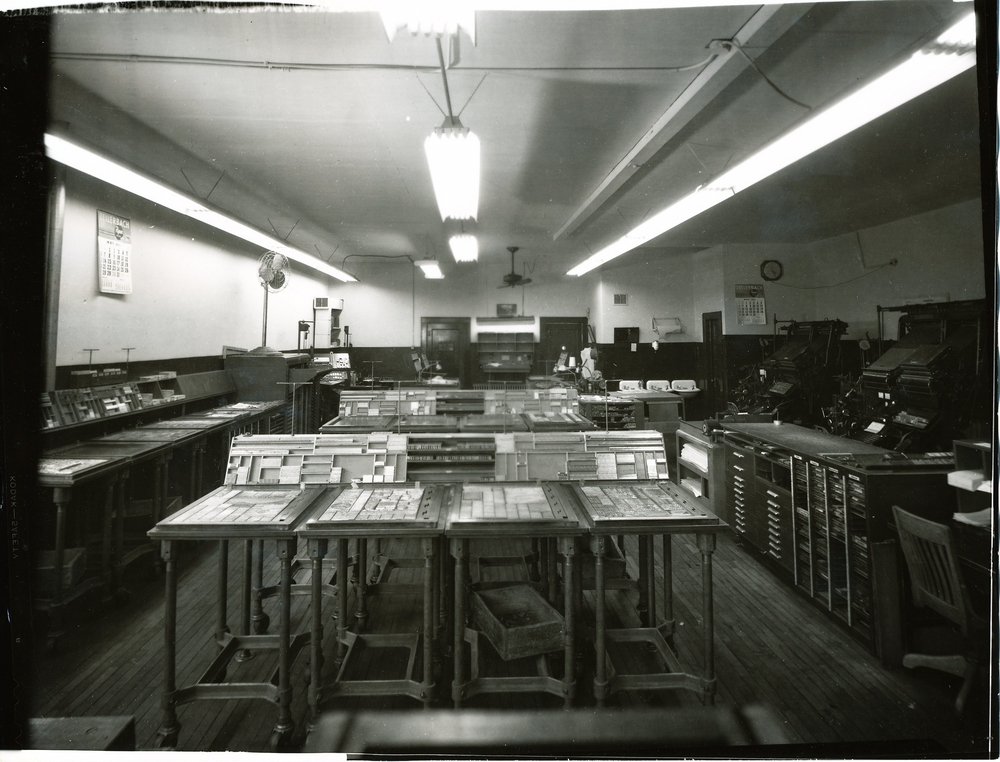"Ada Hastings Hedges is an exquisite artist . . . one of the most finished poets in America,” declared poetry editor Borghild Lee in the Oregon Journal, March 14, 1926.
Ada May Hastings was born in Illinois in 1884 and was educated at a teacher’s college there. She and her husband, William E. Hedges, M.D., came to Portland in 1912 but soon moved to Juntura, between Burns and Vale on the Malheur River, where he was a railroad physician and she taught high school. They returned to Portland in 1919; he practiced there until his death in 1936.
Ada Hedges taught high school, was active in the veterans’ rights movement, served as supervising editor of fifty-four writers in the Works Progress Administration who produced the Oregon State Guide, and was assistant editor at Binfords and Mort Publishers. She last taught English literature and creative writing at Warner Pacific College in the 1960s.
The abiding interest in her life was writing: short fiction; a series of reviews of modern poetry published in the Albany Democrat; and “Close-ups of Oregon Poets,” which were presented on KOAC, Corvallis. But most of all she wrote poetry. Her poems appeared in major periodicals such as The Nation, Commonweal, Poetry, The New York Times, London Mercury, Contemporary Verse, American Mercury, and a host of popular magazines and local newspapers. She published her first poem in Overland Monthly at age 28.
One of the few authors associated with the wide expanse of the southeastern desert of Oregon, Hedges published her only collection, Desert Poems, in 1930. She told Alfred Powers that the desert region had always fascinated her; she had found it “full of mystery and beauty in its own bleak fashion…strangely haunting and baffling.” The poems were written in traditional sonnet form, with a feminist outlook, informed by the acridness of the rough-edged railroad and cattle town Juntura and the surrounding sagebrushed “lava-miles … indifferent and timeless as the stars.”
With her thirteen sonnets entitled “The Desert Wife,” Hedges can be described as the other poet in the Oregon desert, because in these poems she responds to C.E.S. Wood’s The Poet in the Desert (1915). He saw the place as something to be defeated or seduced; Hedges knows it as a symbol of an awesome, terrifying, and indifferent cosmos and is powerless to change her fate within it. She speaks for those Oregon pioneers who made their home in the “promised land” of the high desert and the toll this took on their lives:
They grew more passive with the meagre years,
Upon their lips and hearts the desert lay
The silence that had throbbed upon their ears—
And after all there was not much to say. (Sonnet XII)
Hedges continued writing and publishing poems. At age 96, she received an honorable mention for a poem she entered in the annual Ben Hur Lampman poetry contest. She had no children and passed her last three years in a Portland nursing home. She died July 8, 1980.
Oregon poet Ingrid Wendt has written that Hedges is one of the first women’s voices “to present alternative visions of human connection and continuity rooted in traditionally female values.”
-
![Ada Hastings Hedges, about 1930.]()
Ada Hastings Hedges, about 1930..
Ada Hastings Hedges, about 1930. Courtesy Oregon State Libr., 2008.001.0831
Related Entries
-
Albany Democrat-Herald
Newspapers on the western frontier were partisan and frequently flaunte…
-
![Binfords and Mort]()
Binfords and Mort
Oregon's first major book publisher, Binfords & Mort, was establish…
-
![C.E.S. Wood (1852-1944)]()
C.E.S. Wood (1852-1944)
C.E.S. Wood may have been the most influential cultural figure in Portl…
Map This on the Oregon History WayFinder
The Oregon History Wayfinder is an interactive map that identifies significant places, people, and events in Oregon history.
Further Reading
Hedges, Ada Hastings. Desert Poems. Portland, Ore.: Metropolitan Press, 1930.
Lee, Borghild. “Mrs. Hedges Is Exquisite in Her Poetry.” Oregon Journal, March 14, 1926, sec. 4, p. 6.
Powers, Alfred. History of Oregon Literature. Portland, Ore.: Metropolitan Press, 1935.
Wendt, Ingrid, and Primus St. John, eds. From Here We Speak: An Anthology of Oregon Poetry. Corvallis: Oregon State University Press. 1993.




